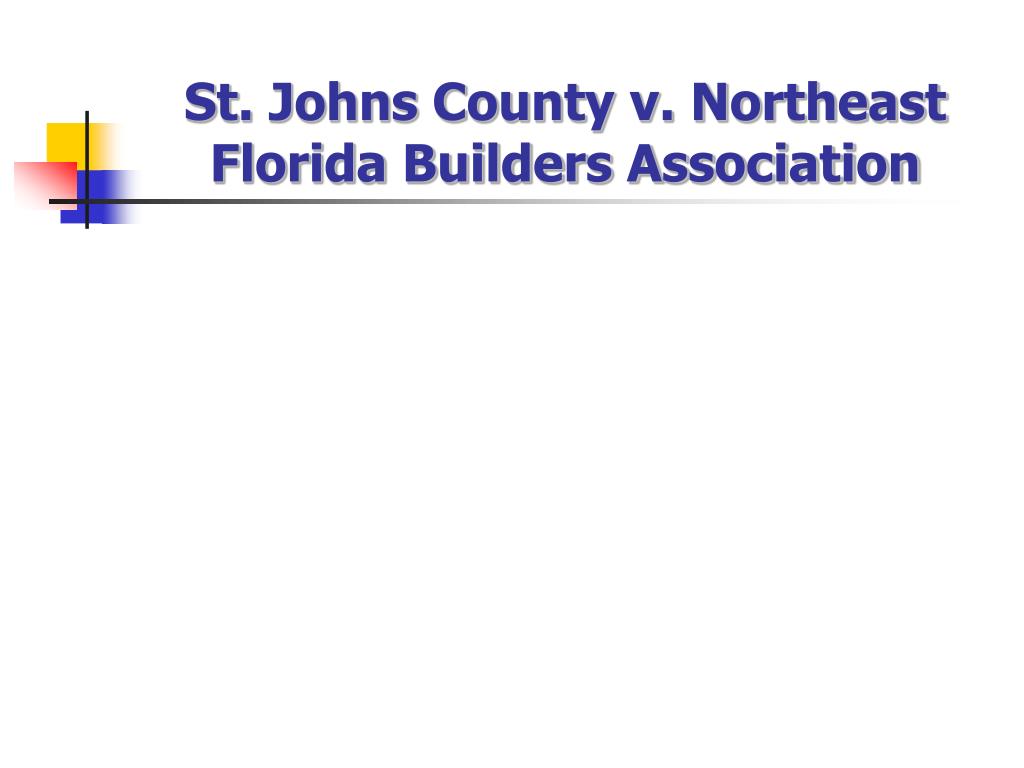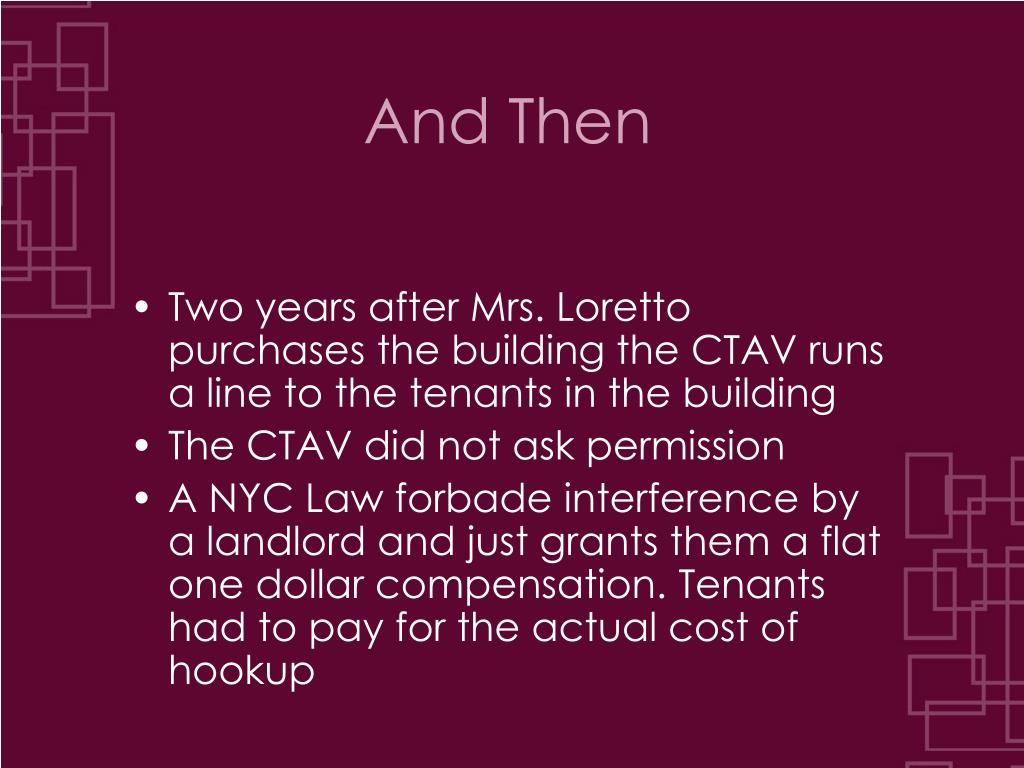
Loretto argued that Manhattan Teleprompter's minor but permanent physical occupation of Loretto's property was a trespass. The Court addressed the issue of whether Manhattan Teleprompter's minor but permanent physical occupation of Loretto's property constitutes a physical taking of property for which just compensation is due under the Fifth Amendment, as incorporated against the states by the Fourteenth Amendment. Loretto petitioned the Supreme Court for certiorari, which was granted by the U.S. The judgment was affirmed by the New York Court of Appeals. The New York Supreme Court upheld the constitutionality of the statute and rendered summary judgment for Manhattan Teleprompter, finding that non-crossover installations constituted a taking for which just compensation is due, but here the law served a legitimate public purpose there is no significant economic impact on expectations of investors, rejecting the theory that physical presence is per se a taking. Loretto, on behalf of all property owners so situated, sued Manhattan Teleprompter for trespass and-insofar as Teleprompter relied on § 828-a taking without just compensation, and requested damages and injunctive relief the City of New York intervened in the case. Prior to Loretto's acquisition of the property, Manhattan Teleprompter installed cable television wires on Loretto's property pursuant to § 828 of the Executive Law. Jean Loretto owned a five-story apartment building located at 303 West 105th Street, New York City.

Section 828 of the Executive Law of New York required certain property owners to permit installation and maintenance of certain cable television wires on their property. In doing so, it established the permanent physical presence test for regulatory takings.

419 (1982), was a case in which the Supreme Court of the United States held that when the character of the governmental action is a permanent physical occupation of property, the government actions effects regulatory taking to the extent of the occupation, without regard to whether the action achieves an important public benefit or has only minimal economic impact on the owner. Teleprompter Manhattan CATV Corp., 458 U.S.


 0 kommentar(er)
0 kommentar(er)
